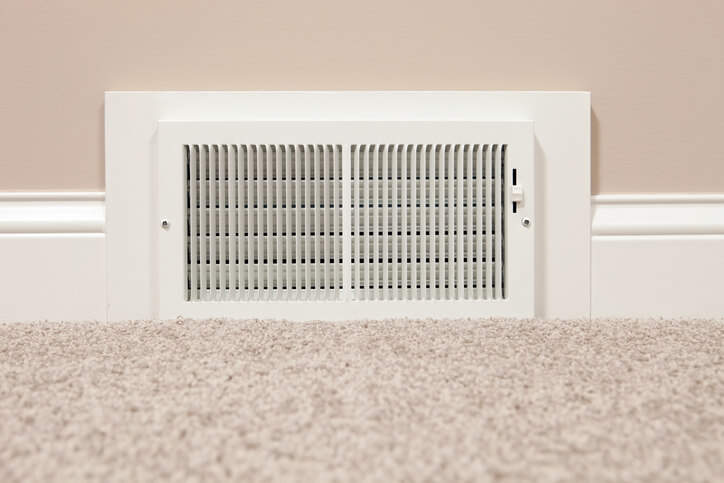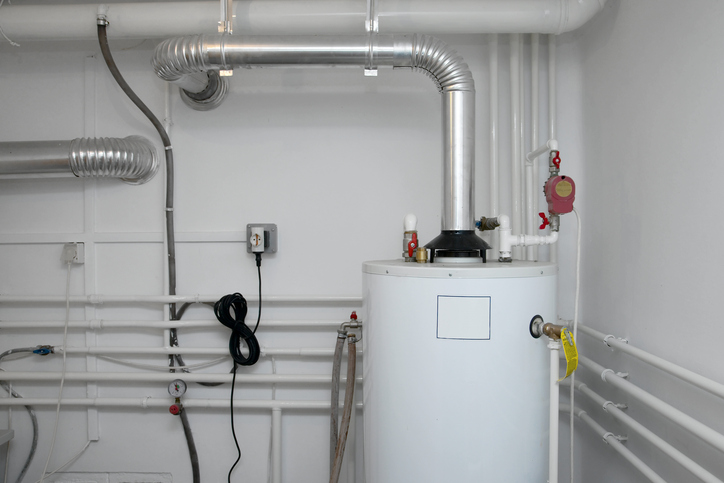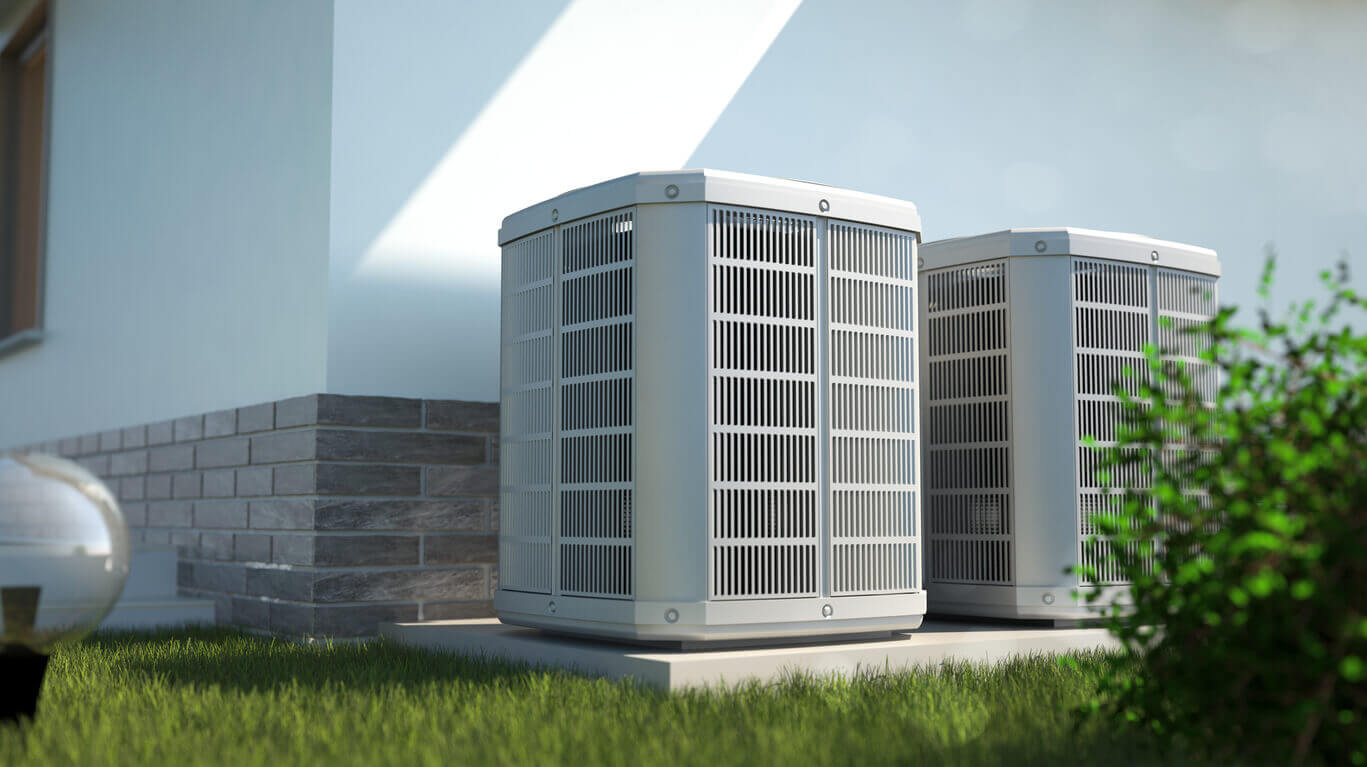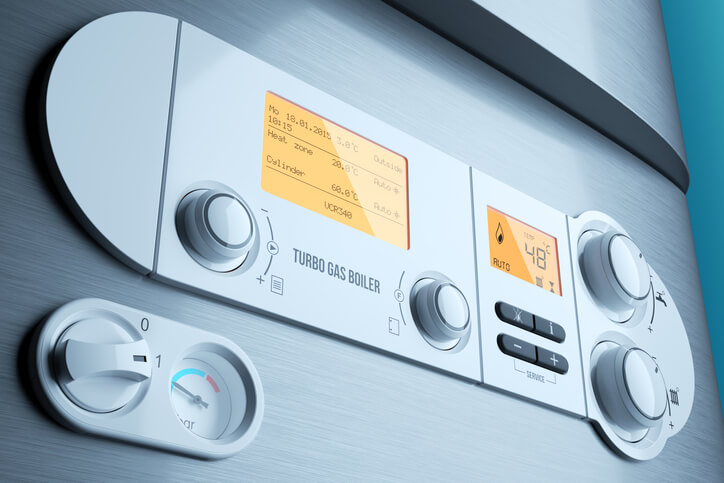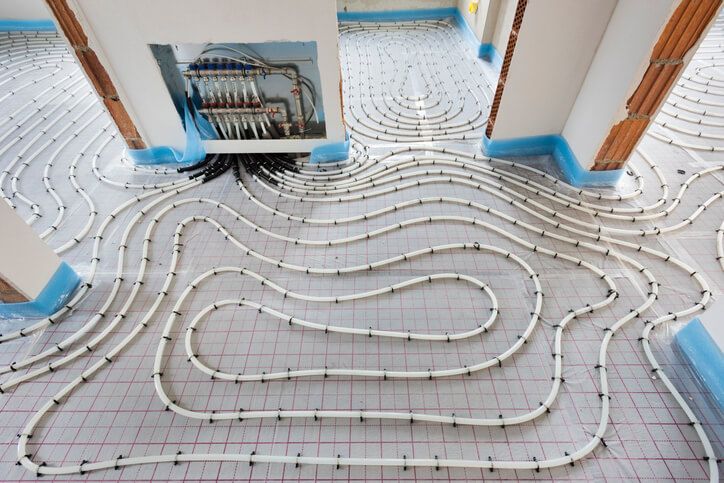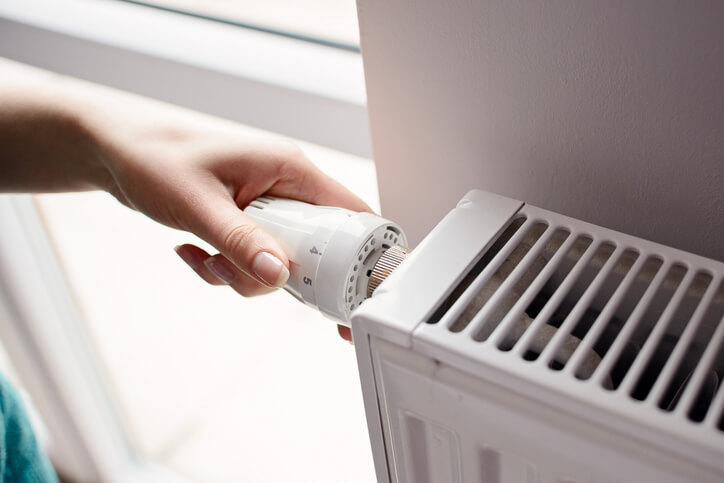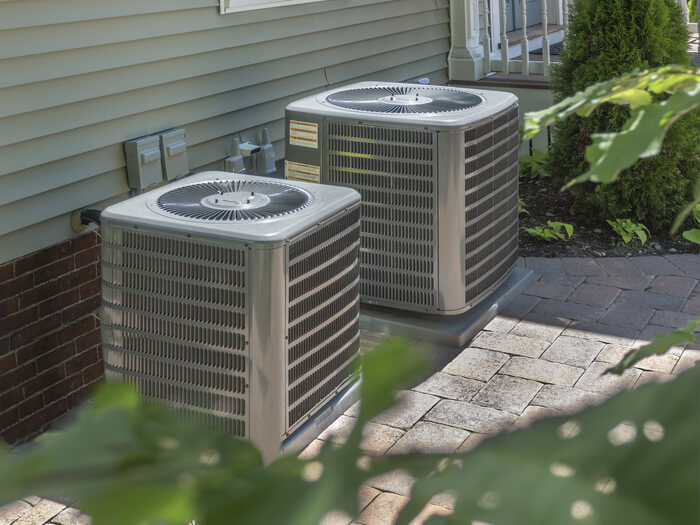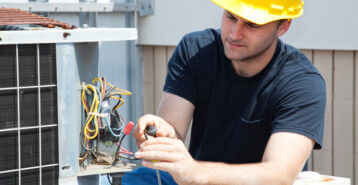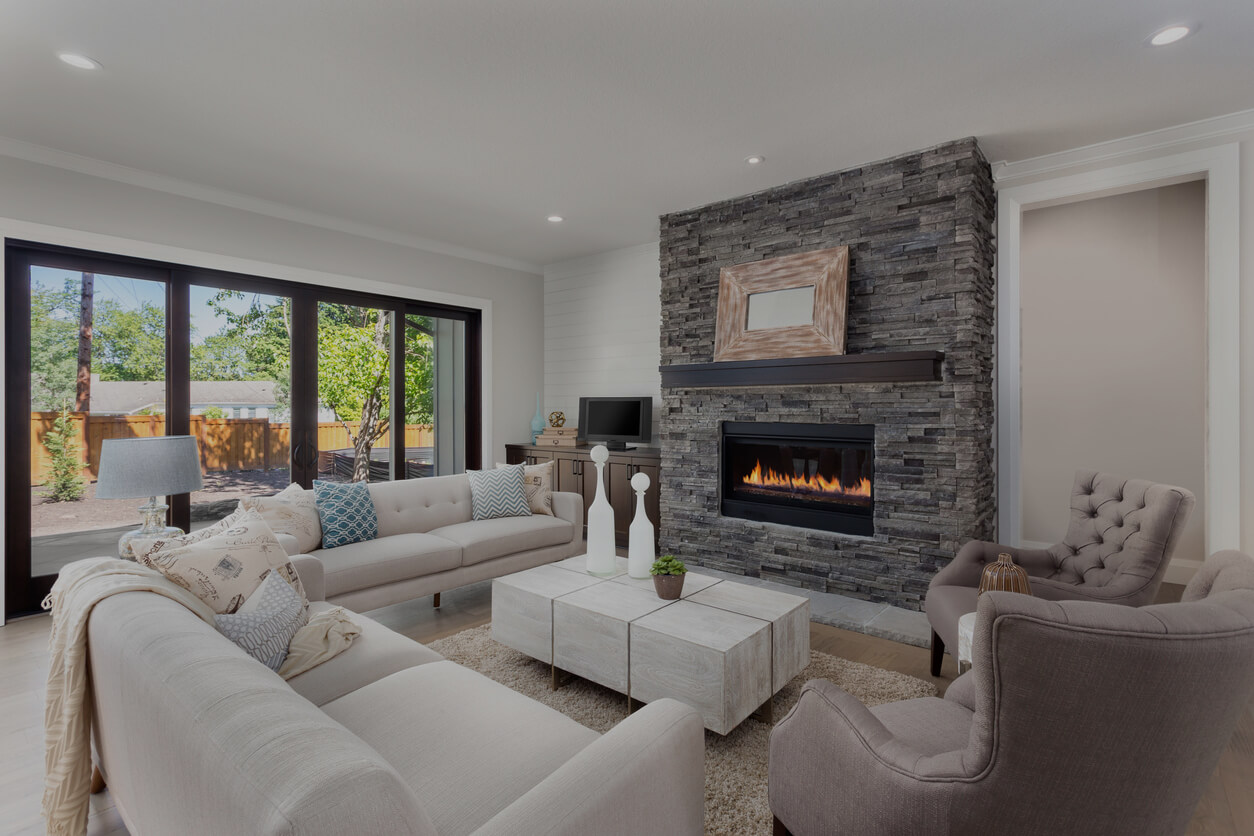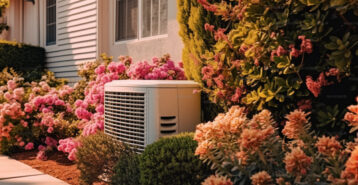Home Heating Systems: What to Know
A reliable home heating system is essential for comfort, safety, and energy savings during colder months. This guide explains how the main options work, from furnaces and boilers to heat pumps and radiant floors, and what to expect for upkeep, efficiency, and costs. You’ll learn how to spot common issues, plan repairs or replacements, and speak confidently with licensed contractors. Use the quick tables, definitions, and FAQs to compare systems and choose what fits your home and budget.
HVAC Forced-Air Systems
Forced-air systems move heated air through ducts to vents in each room. A thermostat turns the equipment on and off to hold your set temperature. These systems mainly differ in how the air is heated — gas or electric furnaces, air-source heat pumps, or central AC paired with a furnace. The most common types are:
If you have existing ductwork in place, forced-air HVAC systems are a good option. They provide even and efficient heating throughout the home and maintain air quality by filtering the air before it is distributed.
These systems need routine maintenance to stay efficient and reliable. Replace filters regularly, and consider duct cleaning to limit dust and debris. Forced-air setups are often louder than radiant heat. Below, we compare the main heating options to help you choose.
Furnaces
Furnaces are the most common heating systems installed in homes due to higher efficiency, durability, and longer lifespans. A furnace unit that is 20 years old can still run at 70% efficiency. Furnaces use a fuel source to generate heat through combustion and distribute it using ducts. You can choose from gas furnaces, electric furnaces, solid-fuel furnaces, or oil-burning furnaces based on the availability of fuel in your area.
To keep your furnace efficient, replace filters regularly and keep ducts clean. A dirty or faulty furnace runs longer and uses more energy. Before each season, do a quick self-check — or hire a licensed professional — to inspect your HVAC system. Understanding furnace repair costs can help you address small issues early and keep your heating system running efficiently.
Heat Pumps
Heat pump systems provide both heating and cooling in homes by transferring heat from a cooler space to a warmer space. They use a reversing valve that changes the flow of refrigerant inside the heat pump unit to transfer heat in the desired direction. Heat pumps run on electricity and move heat rather than generate it, which can help you save on energy bills.
You can choose from these three types of heat pumps for your home:
- Air-Source Heat Pumps: These use air ducts and vents to distribute heat and can be combined with a furnace unit during winter.
- Ductless Mini-Split Heat Pumps: Mini-split air handler units are installed in different rooms of the home, creating zones for heating. These are connected to a single outdoor compressor unit.
- Geothermal Heat Pumps: These ground- and water-source heat pumps use Earth’s temperature to heat or cool homes. They have higher installation costs but can deliver a strong ROI.
Heat pumps typically cost less to operate than resistive electric heat and some central systems. However, they are not ideal for extreme subfreezing temperatures. You may need to install a furnace or other packaged HVAC system to supplement performance in very cold climates. Learning about heat pump repair costs can help you make informed decisions and take care of problems before they affect efficiency.
Boilers and Heaters
A boiler generates hot water or steam to power baseboard, radiant, or radiator heating. Today’s newer models are very different from their cumbersome predecessors. Small, compact, and energy-efficient versions are available that offer low maintenance and no drop-off in performance. Natural gas, propane, oil, and electricity are fuels used by boiler systems to convert water into steam. Old, inefficient boilers or coal burners that were switched or retrofitted to burn oil or gas are likely candidates for upgrading to a new, high-efficiency boiler.
High-efficiency boilers use a direct-vent system, which means their exhaust gas and combustion air circulate through the wall to the outside, eliminating chimney requirements. The combustion chamber of newer systems is sealed, preventing any exhaust or gases from entering your home. Knowing what influences boiler repair costs can make it easier to plan timely repairs and maintain consistent home heating.
It is always smart to get price quotes from at least four pre-screened and licensed HVAC repair and installation contractors before starting your project in order to get the best price. Let Modernize help you do that in a few easy steps.
In-Floor or Underfloor Heating
In-floor or underfloor radiant heating is becoming popular for its efficiency. They run on steam, oil, gas, electricity, or solar and use tubing or electric cables beneath the finished floor.
Underfloor heating systems provide even distribution of heat in larger spaces and use less energy than some traditional systems. It’s a cost-effective solution for new construction homes but might be too expensive for existing homes, as the flooring needs to be removed and reinstalled.
Home Heating Radiators
An older method of heating with steam uses a radiator and boiler system. Usually found in older homes and apartment buildings, cast iron radiators use steam to heat an area. The radiators connect with either a one-pipe or a two-pipe system, which carries the steam and condensate to and from the boiler. The boiler converts the water and condensate into steam, which in turn travels to and heats the radiator to provide the heat.
Home radiators heat up quickly and require fewer moving parts, making them extremely reliable and durable. You can replace an older cast iron radiator with newer wall-panel, baseboard, or column radiators for improved aesthetics. Reviewing radiator repair costs can help you prioritize repairs that improve comfort and support efficient heating.
Home Heating System Repair and Maintenance
The heating systems above produce adequate heat and comfort levels to help you stay warm during the winter months. Like any equipment, home heating systems can fail. Hire a licensed, insured contractor experienced with your system for maintenance or repairs. Before you choose, ask for references, and check the Better Business Bureau (BBB) for complaints.
For safety reasons, before performing any recommended procedures, verify that the power or gas to the system is off.
Once you’re ready, here are your heating maintenance tips by system type.
Home Furnaces and Boilers
- Air Filter Replacement: Replace filters regularly to maintain airflow and protect components.
- Flue Pipe Inspection: Check for visible cracks, holes, or leaks that could allow dangerous carbon monoxide into your home.
- Oil Filter Replacement: Replace the oil filter on oil-fired systems to keep fuel flowing cleanly.
- Register and Return Cleaning: Vacuum and wipe supply and return grilles to limit dust recirculation.
- Annual Professional Service: Schedule yearly maintenance with a licensed HVAC contractor.
Heat Pump and Central Air Systems
Heat pumps and central systems use filters to protect evaporator coils from dust and debris. Change filters regularly to keep airflow strong. Dirty coils and restricted airflow make the system work harder, raise energy use and costs, and can shorten equipment life.
- Evaporator Coil Cleaning: Apply an approved coil cleaner, let it dwell, then rinse with clean water. Follow the label, and wear gloves and safety goggles.
- Indoor Fan Motor Lubrication: Remove the air handler cover and add a few drops of the specified oil if the motor has ports.
- Outdoor Fan Motor Lubrication: Lubricate condenser or heat pump fan motors as directed by the manufacturer.
- Clear Space Around Outdoor Unit: Keep weeds, grass, and debris away to maintain airflow.
- Outdoor Coil Rinse: Gently rinse condenser coils with water to remove dirt.
- Register and Return Cleaning: Dust and vacuum vents to limit recirculated debris.
- Annual Professional Maintenance: Schedule a yearly tune-up with a licensed HVAC contractor.
Routine annual maintenance can extend equipment life and improve energy efficiency. For more information, explore Modernize’s Homeowner Maintenance Guide. Failing to perform routine maintenance can lead to emergency heating repair during the winter, or emergency cooling repair in the summer.
Home Heating Repair, Replacement, and Installation
Replacing or installing a heating system is a big project. Plan ahead and size the equipment correctly to avoid delays and unexpected costs. Keep these points in mind:
- Value vs. Price: The cheapest bid can mean lower-quality equipment or workmanship. High-efficiency models can pay back through lower energy use.
- SEER/SEER2 Awareness: Higher seasonal efficiency reduces electricity use in cooling. Compare SEER2 to SEER2 when possible.
- Competitive Estimates: Get multiple quotes from reputable contractors, and compare scopes, brands, and warranties.
- Refrigerant Choice: Avoid legacy R-22. Choose equipment that uses current refrigerants — such as R-410A or newer — per local code.
- Maintenance Plan: A yearly service agreement helps maintain performance and can prevent costly failures.
- Right-Sizing (Manual J): Have your contractor perform a Manual J load calculation.
- Financing Options: Ask about promotional financing to spread costs responsibly.
Your heating system is essential to comfort and safety. If it’s failing, don’t delay repairs or replacement — waiting can raise costs and risk downtime in winter.
Compare top-rated HVAC pros in your area.
Read real homeowner reviews, explore qualifications, and view promotions. Modernize makes it easy to browse professionals and find one that will be perfect for your project.
